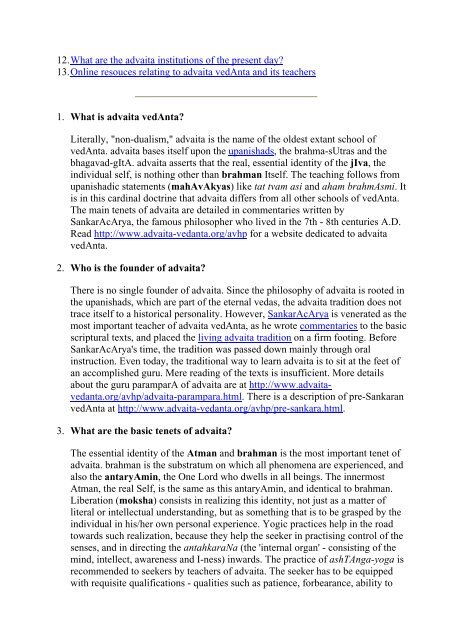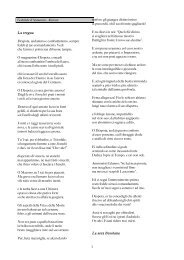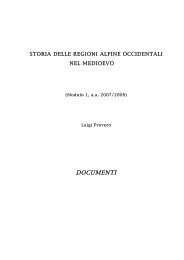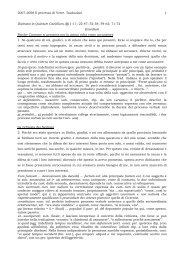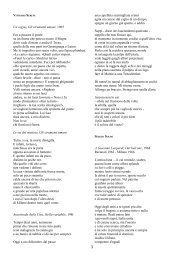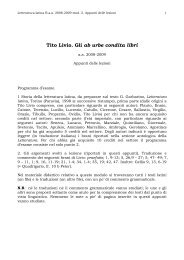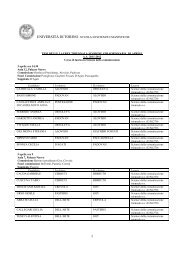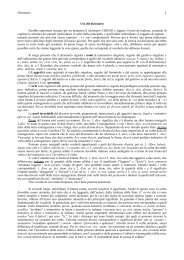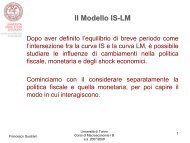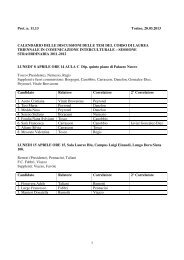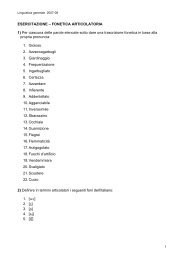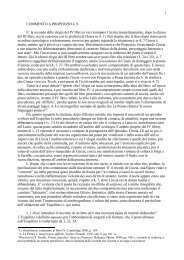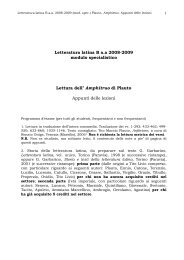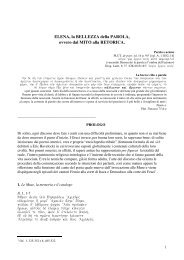ajAti vAda
ajAti vAda
ajAti vAda
You also want an ePaper? Increase the reach of your titles
YUMPU automatically turns print PDFs into web optimized ePapers that Google loves.
12. What are the advaita institutions of the present day?<br />
13. Online resouces relating to advaita vedAnta and its teachers<br />
1. What is advaita vedAnta?<br />
Literally, "non-dualism," advaita is the name of the oldest extant school of<br />
vedAnta. advaita bases itself upon the upanishads, the brahma-sUtras and the<br />
bhagavad-gItA. advaita asserts that the real, essential identity of the jIva, the<br />
individual self, is nothing other than brahman Itself. The teaching follows from<br />
upanishadic statements (mahAvAkyas) like tat tvam asi and aham brahmAsmi. It<br />
is in this cardinal doctrine that advaita differs from all other schools of vedAnta.<br />
The main tenets of advaita are detailed in commentaries written by<br />
SankarAcArya, the famous philosopher who lived in the 7th - 8th centuries A.D.<br />
Read http://www.advaita-vedanta.org/avhp for a website dedicated to advaita<br />
vedAnta.<br />
2. Who is the founder of advaita?<br />
There is no single founder of advaita. Since the philosophy of advaita is rooted in<br />
the upanishads, which are part of the eternal vedas, the advaita tradition does not<br />
trace itself to a historical personality. However, SankarAcArya is venerated as the<br />
most important teacher of advaita vedAnta, as he wrote commentaries to the basic<br />
scriptural texts, and placed the living advaita tradition on a firm footing. Before<br />
SankarAcArya's time, the tradition was passed down mainly through oral<br />
instruction. Even today, the traditional way to learn advaita is to sit at the feet of<br />
an accomplished guru. Mere reading of the texts is insufficient. More details<br />
about the guru paramparA of advaita are at http://www.advaitavedanta.org/avhp/advaita-parampara.html.<br />
There is a description of pre-Sankaran<br />
vedAnta at http://www.advaita-vedanta.org/avhp/pre-sankara.html.<br />
3. What are the basic tenets of advaita?<br />
The essential identity of the Atman and brahman is the most important tenet of<br />
advaita. brahman is the substratum on which all phenomena are experienced, and<br />
also the antaryAmin, the One Lord who dwells in all beings. The innermost<br />
Atman, the real Self, is the same as this antaryAmin, and identical to brahman.<br />
Liberation (moksha) consists in realizing this identity, not just as a matter of<br />
literal or intellectual understanding, but as something that is to be grasped by the<br />
individual in his/her own personal experience. Yogic practices help in the road<br />
towards such realization, because they help the seeker in practising control of the<br />
senses, and in directing the antahkaraNa (the 'internal organ' - consisting of the<br />
mind, intellect, awareness and I-ness) inwards. The practice of ashTAnga-yoga is<br />
recommended to seekers by teachers of advaita. The seeker has to be equipped<br />
with requisite qualifications - qualities such as patience, forbearance, ability to


